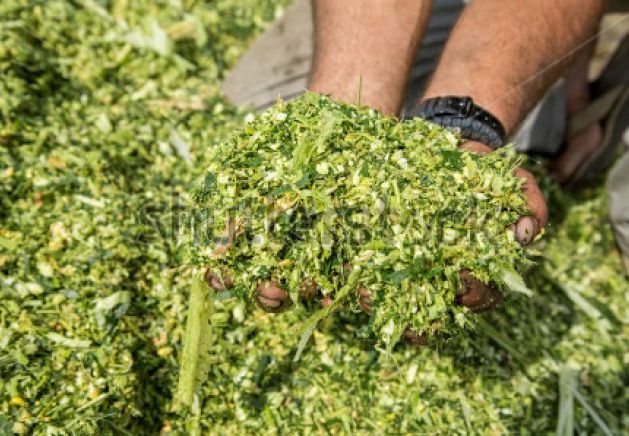The Environmental Benefits of Feeding Maize Silage to Dairy Cows in Kenya
As the world becomes increasingly concerned about the environment, farmers are looking for ways to reduce their environmental impact while maintaining profitability. One way that dairy farmers in Kenya can do this is by feeding their cows maize silage. Maize silage has a number of environmental benefits that make it a more sustainable option for dairy farming.
Reduced greenhouse gas emissions
One of the biggest environmental benefits of feeding maize silage to dairy cows is that it can help to reduce greenhouse gas emissions. Greenhouse gases, such as carbon dioxide and methane, contribute to climate change by trapping heat in the Earth’s atmosphere. Dairy cows are a significant source of methane emissions, as they produce methane during digestion.
However, by feeding cows maize silage instead of other types of feed, such as hay or grain, farmers can reduce the amount of methane produced by their cows. This is because maize silage is more easily digested by cows, which reduces the amount of methane produced during digestion. According to a study published in the Journal of Animal Science, feeding cows maize silage instead of hay can reduce methane emissions by up to 21%.
Reduced use of fertilizers and pesticides
Another environmental benefit of feeding maize silage to dairy cows is that it can help to reduce the use of fertilizers and pesticides. Maize is a crop that requires a lot of nitrogen to grow, which is typically supplied through the use of synthetic fertilizers. However, by harvesting the maize and storing it as silage, farmers can reduce the amount of nitrogen that is lost to the environment through leaching or runoff.
Additionally, by feeding cows maize silage, farmers can reduce their reliance on pesticides. Pesticides are typically used to control pests and diseases that can damage crops, but by storing maize as silage, farmers can reduce the risk of pests and diseases affecting their crop.
Reduced soil erosion
Maize silage can also help to reduce soil erosion. Soil erosion is a major problem in many parts of Kenya, as it can lead to reduced soil fertility and increased sedimentation in rivers and lakes. Maize is a crop that is particularly prone to soil erosion, as it has a shallow root system and is often grown on steep slopes.
However, by harvesting maize and storing it as silage, farmers can reduce the amount of soil that is exposed to erosion. This is because the silage helps to protect the soil from the elements and provides a layer of organic matter that can help to improve soil structure.
Improved soil health
In addition to reducing soil erosion, feeding cows maize silage can also help to improve soil health. Maize is a crop that has a high demand for nutrients, which can lead to soil depletion over time. However, by harvesting the maize and storing it as silage, farmers can return the nutrients to the soil in the form of manure.
Manure is a valuable source of organic matter and nutrients for the soil, and can help to improve soil fertility and structure. By using maize silage to feed their cows, farmers can produce a steady supply of manure that can be used to improve soil health and reduce the need for synthetic fertilizers.
Reduced water use
Finally, feeding cows maize silage can help to reduce water use in dairy farming. Maize is a crop that requires a lot of water to grow, and in many parts of Kenya, water is a scarce resource. However, by harvesting the maize and storing it as silage, farmers can reduce the amount of water that is required to grow and harvest the crop.
Additionally, by feeding cows maize silage, farmers can reduce the amount of water that is required to produce milk. This is because cows that are fed a high-quality diet, such as maize silage, are more efficient at converting feed into milk, which reduces the amount of feed and water required to produce a liter of milk. According to a study published in the Journal of Dairy Science, feeding cows maize silage instead of other types of feed can reduce the amount of water required to produce a liter of milk by up to 8%. This can be a significant benefit in areas where water resources are limited.
Feeding maize silage to dairy cows in Kenya can provide a number of environmental benefits, including reducing greenhouse gas emissions, reducing the use of fertilizers and pesticides, reducing soil erosion, improving soil health, and reducing water use. By adopting sustainable farming practices, such as feeding cows maize silage, farmers can improve the long-term viability of their farms while also reducing their environmental impact.
